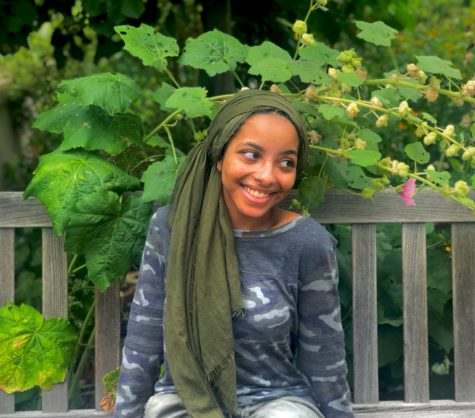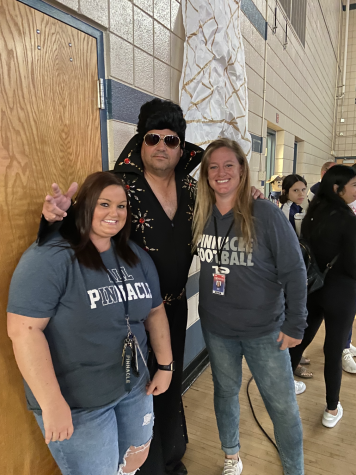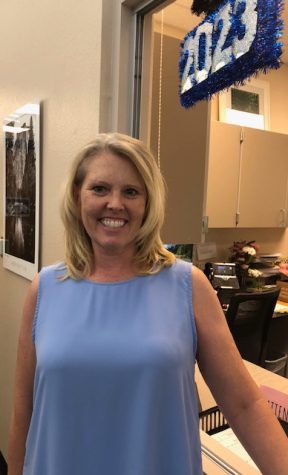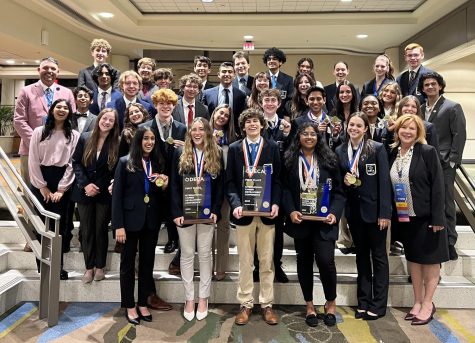Covid Impacts Mental Health of Students and Teachers Alike
From quarantine and shutdowns to distance and hybrid learning, students and staff feel the impact of Covid
With questions pondering on when things may return to normal, not having the ability to see certain friends and family, mental health took a toll on many students and teachers. But still, they try to find the positives of isolation and quarantine.
While most students enjoyed getting a break from the public setting in the beginning, after several months, eventually many felt too isolated.
“The kind of social web network that we lived in wasn’t gone but it was just online, which was a different aspect entirely than the social interaction you might get at school,” said Michael Stalford, junior.
Like so many others, Stalford found time to work on personal projects throughout quarantine. However, the enjoyment of discovering time for personal hobbies guaranteed no extra motivation to completing projects and activities.
“I would say rather neutral on that,: Stalford said. “I haven’t really become more or less motivated. I’d say to a certain extent I’ve been more motivated with my personal projects because I’ve had the time to do them now.”
In his spare time Stalford likes to write and code, which helps him with his mental health because he feels a sort of accomplishment when finishing a story or a coding project.
“I’m not very good at either of them,” he laughs, “but it’s nice to have the time to develop those skills and time to work on [them].”
Another effect many felt from the isolation of the shutdown impacted mental health, in both positive and negative way.
“I can’t do a lot of things that I’ve been doing, like football has been very affected,” junior Brandon Fleer said. “And obviously I haven’t gotten to see many friends or family, but also kind of in a positive way because I’ve been kind of trapped with my family and we’ve had a lot more time to spend together.”
With school back in session in the fall, Fleer remained online and felt less motivated about school, indicating the ease many students found in tuning out their classes when attending from their rooms.
“I could easily just turn my mic off and just walk away from my computer,” Fleer said. “No, I mean I may be a little bit more stressed because now I have a lot of work to do, but I wouldn’t say [my mental health’s] really changed [since summer].”
Like Fleer, freshman Brooklynn Phillips saw both positives and negatives with the online-only school option.
“The negatives would be just staying home for a long period of time and not being able to see friends or some relatives,” said Phillips. “I’m a very social person so it’s just hard not being able to talk or to see anybody. Then the positives were like spending more time with my family together. We got to do a lot of things that we haven’t really done before, we did a lot of games and puzzles.”
Many people indicated that they enjoyed new activities with families or picked up new hobbies during their time in quarantine
“I was starting to get into drawing and coloring and all that so that definitely brought up my motivation afterward,” Phillips also said about her time in quarantine last year and over the summer.
Although Brooklynn attends school online as a PVConnect student, she finds her mental health improved since school opened this year.
“I’m not getting the one on one talking interaction, but like, being in class definitely helps me stay on top of things ‘cause then I get to see my teachers, I get to see some students in the class and online. Before I was having none of that,” said Phillips.
Not all students enjoyed the time spent when the US shut down last spring or filled the days with personal hobbies and quality family time. Janis Stapling*, indicated that Covid affected her negatively because of the way the US handled Covid, the stress of how worse things would get and the thought of people losing loved ones.
“I have always been a person that gets really stressed out by things going on in the world that I can’t control,” Stapling said. “I have always felt that I need to do something to fix it, but am so limited because of my age.”
Stapling responded to this type of stress by looking at her mental and physical state, the only things she felt she could control.
“I learned so many great habits, like getting up earlier, doing things around the house, getting my homework done right away, and rationalizing my feelings when I am emotional,” said Stapling. “I have matured so much from these habits, and many others. I have also stopped letting myself get let down by people, and started to understand that people are going to make mistakes, but I cannot let it destroy me.”
Like students, teachers also felt the impacts from the Covid crisis of the past year. Math teacher Chrissy Hughes experienced a hard time, especially as a parent, wondering when life would return to normalcy again.
“I’ve been doing more with my kids and my husband,” Bonifasi said. “We’ll be going on walks, playing outside, so there’s been pros and cons because we were forced to hang out more [during quarantine], not in a bad way, but you know what I mean. There’s a big picture… but overall more negative things hit. And [we] just have to really focus on finding those positives.”
As the governor started lifting closures in the summer and fall, people got out of the house, which many missed during the shut down and distance learning, but new problems arose. Gayle Pelsnik, American History teacher, said her mental health remained in good shape, but she disliked the mask mandate and felt very isolated.
“You can’t go relax at a restaurant; ou just feel like you have to eat and get out of there,” Pelsnik said. “You can’t go any place where there’s groups of people. There’s none of that. You just feel isolated. Really isolated.”
Mrs. Pelsnik also lost a lot of motivation, saying that before Covid she used to walk every morning, but in quarantine she just didn’t feel like it.
“It’s a good thing that we come to school because I can walk around otherwise you’re sitting there like a lump.” she joked.
As more and more people get vaccinated and the spread of the virus slows, students and teachers look forward next year and a sense of normalcy and improved social and emotional well-being.
*name changed for PHS student who asked to remain anonymous

Magazine has really helped me a lot with journalistic skills such as writing, communicating with others and research. I'd say that it's a helpful class...




